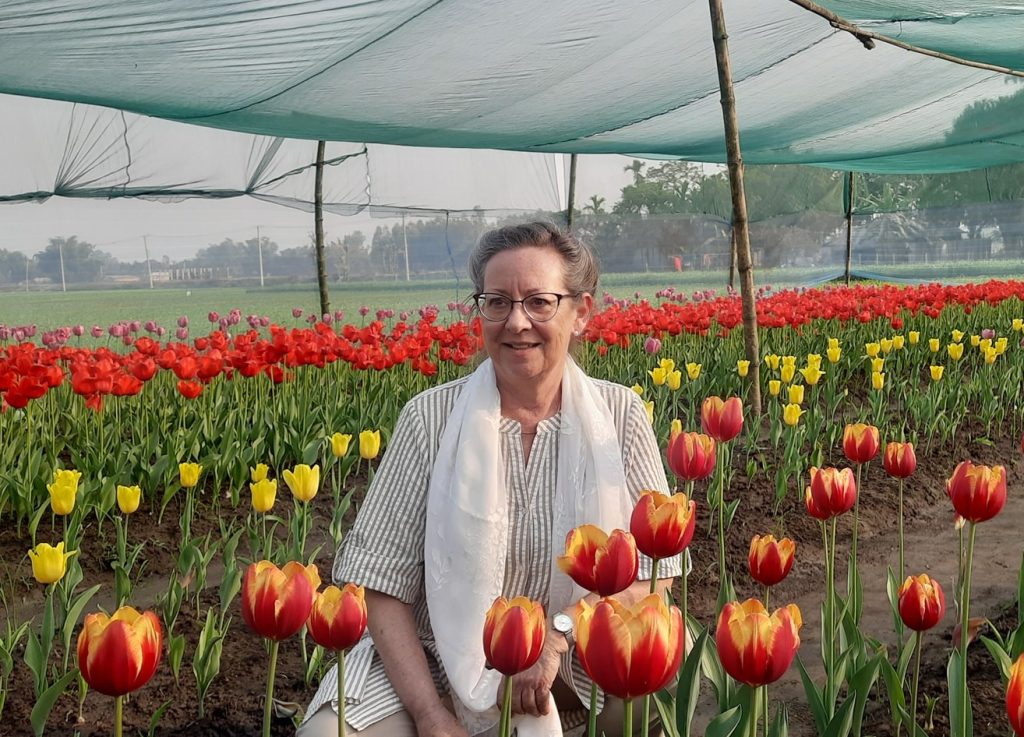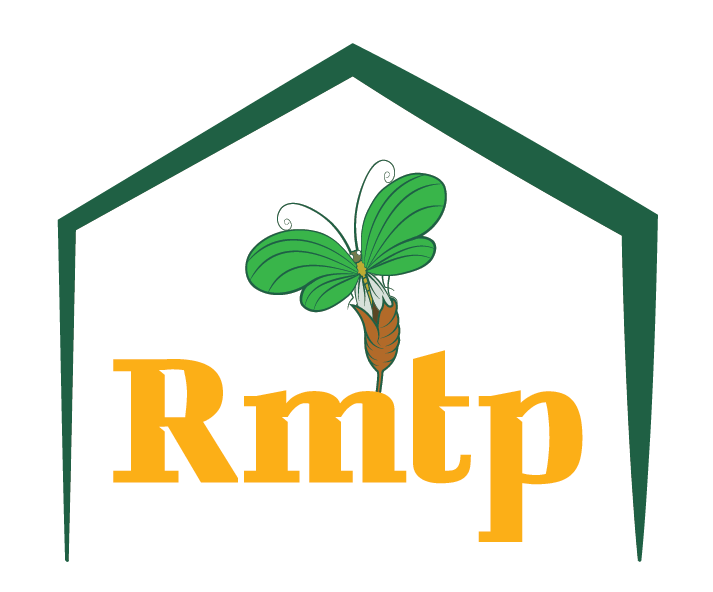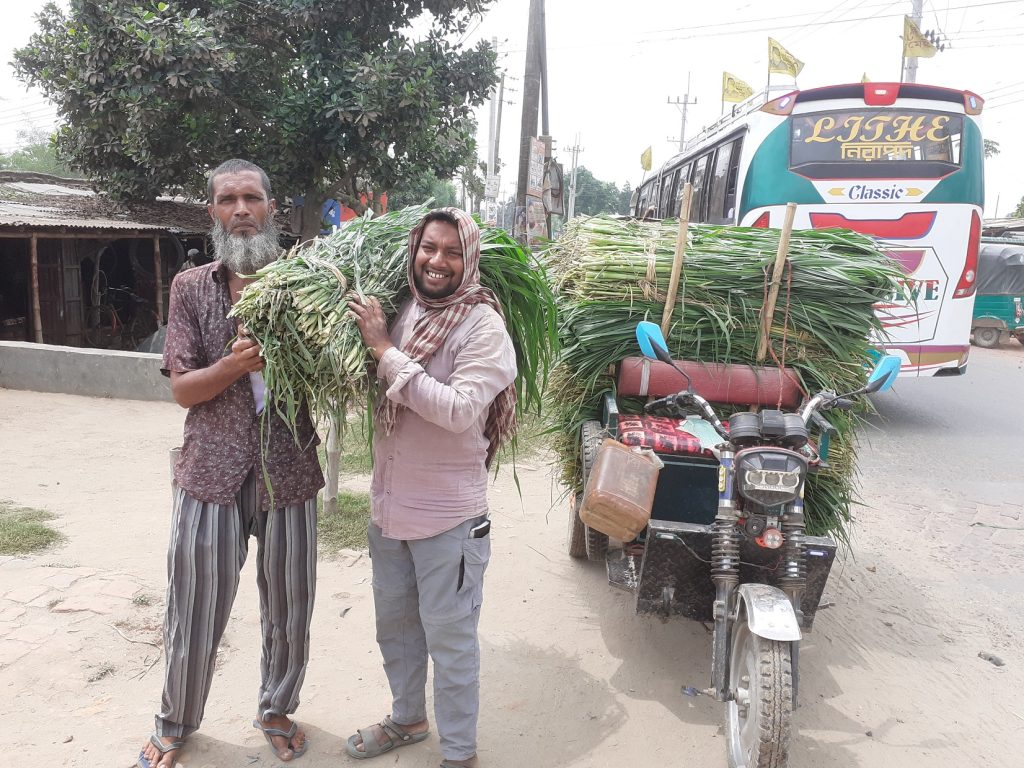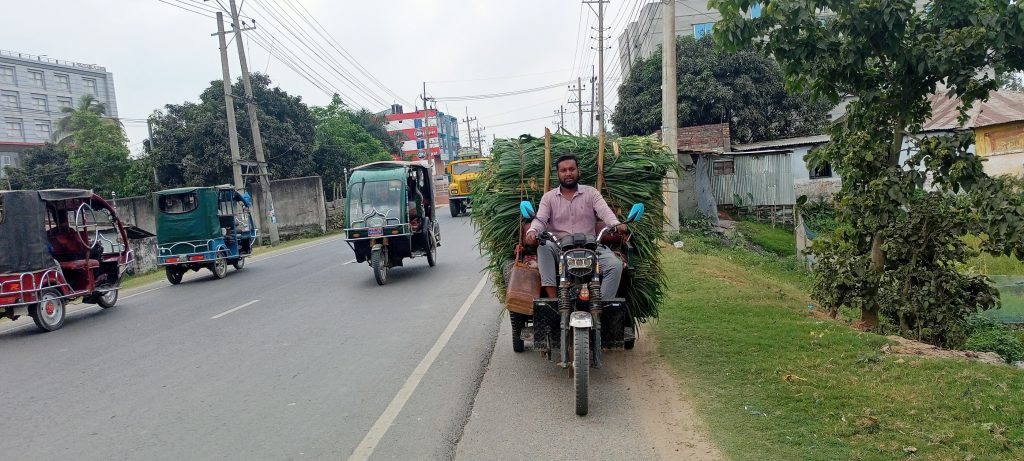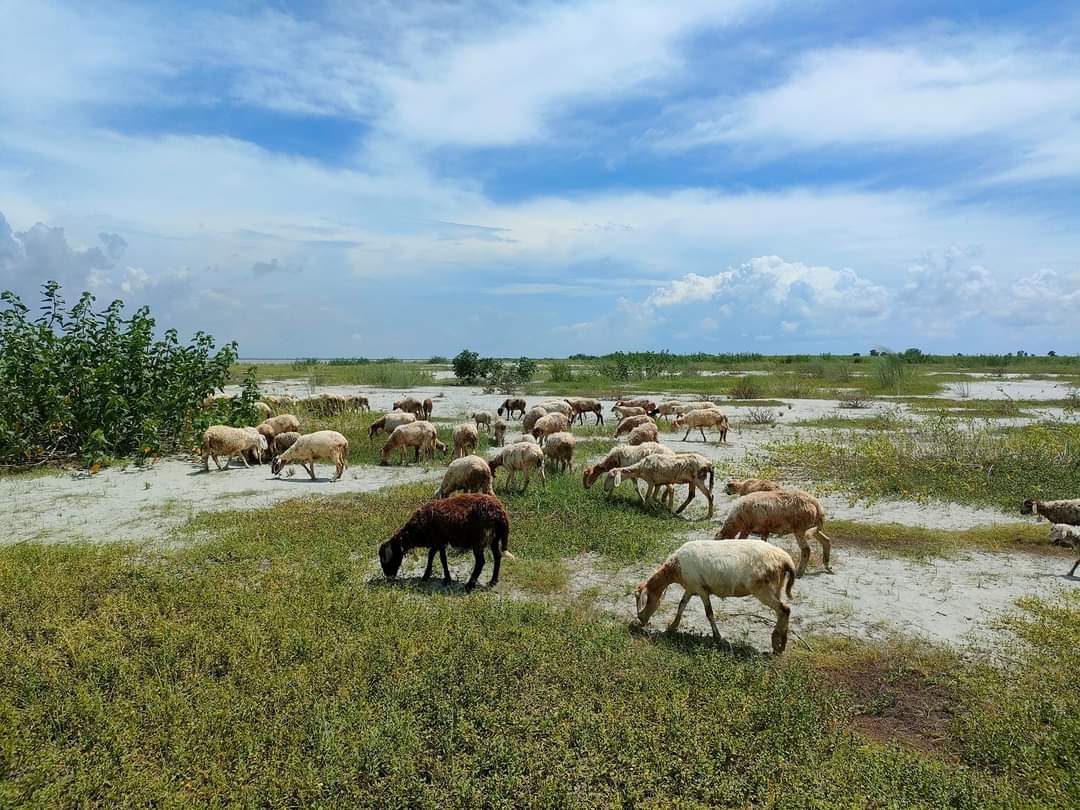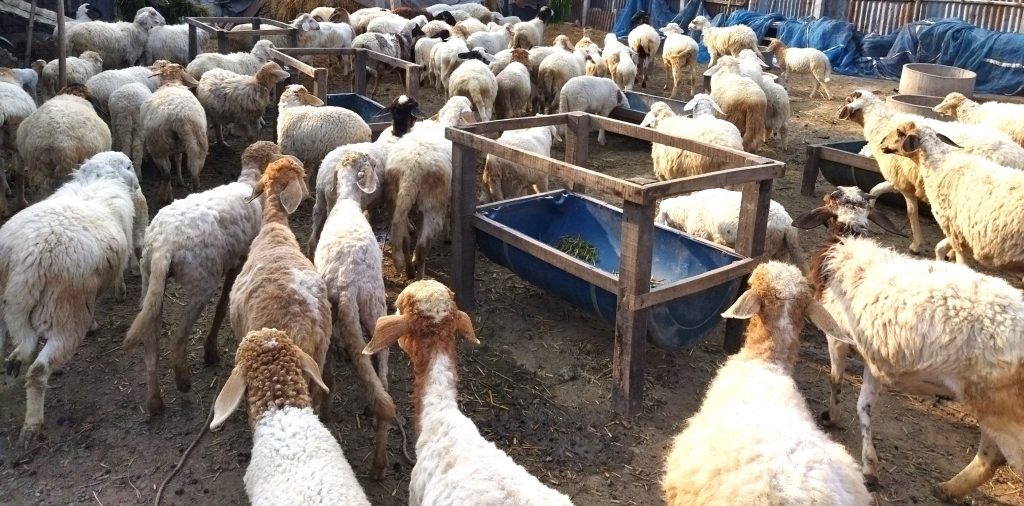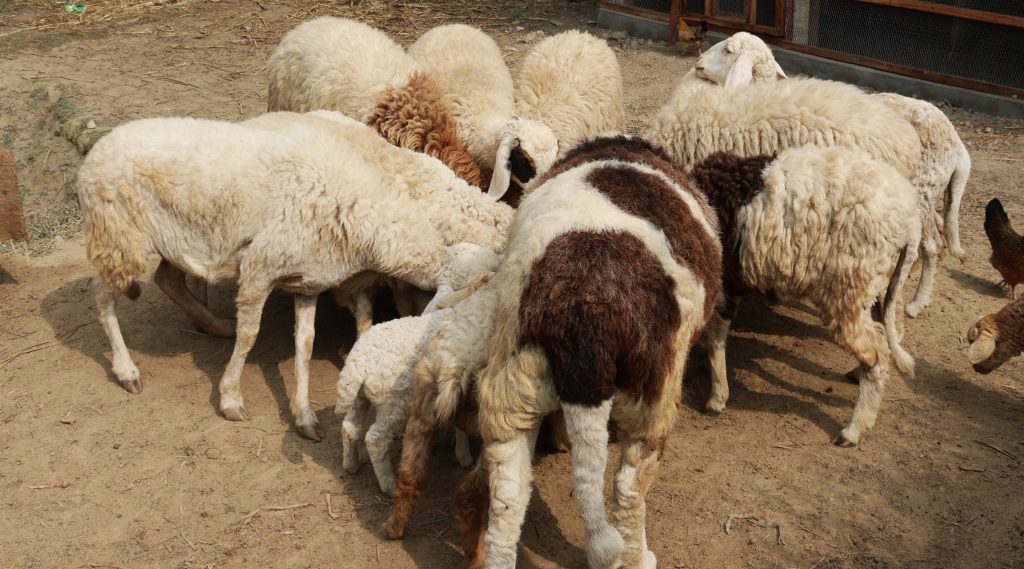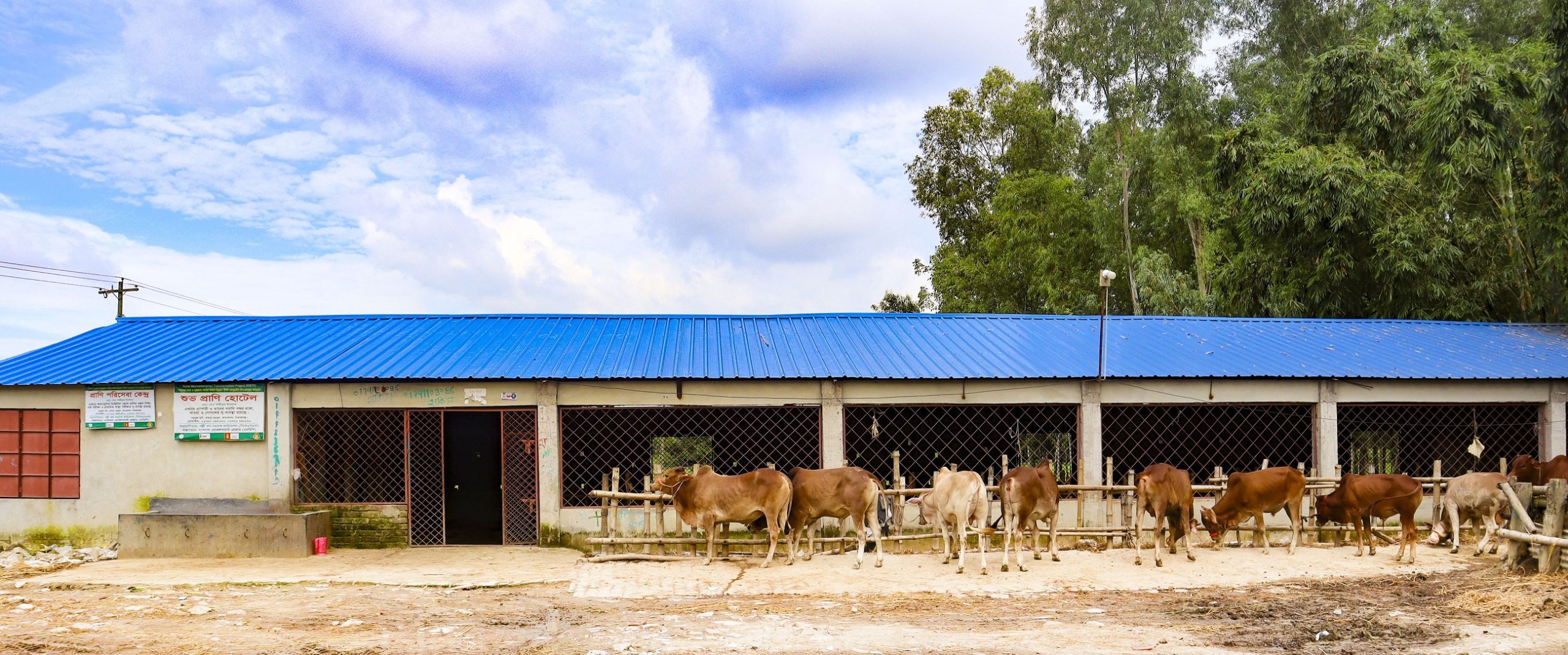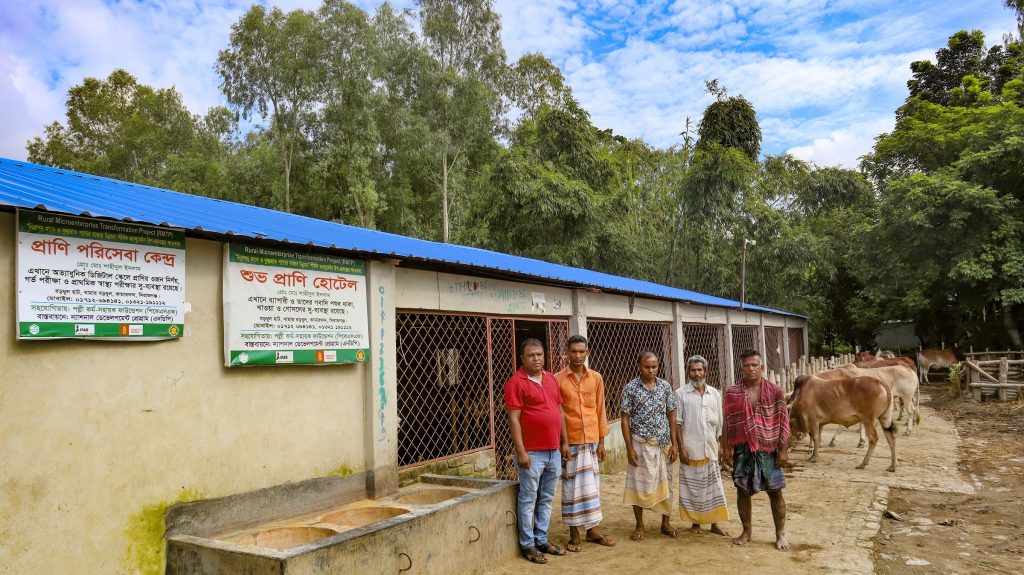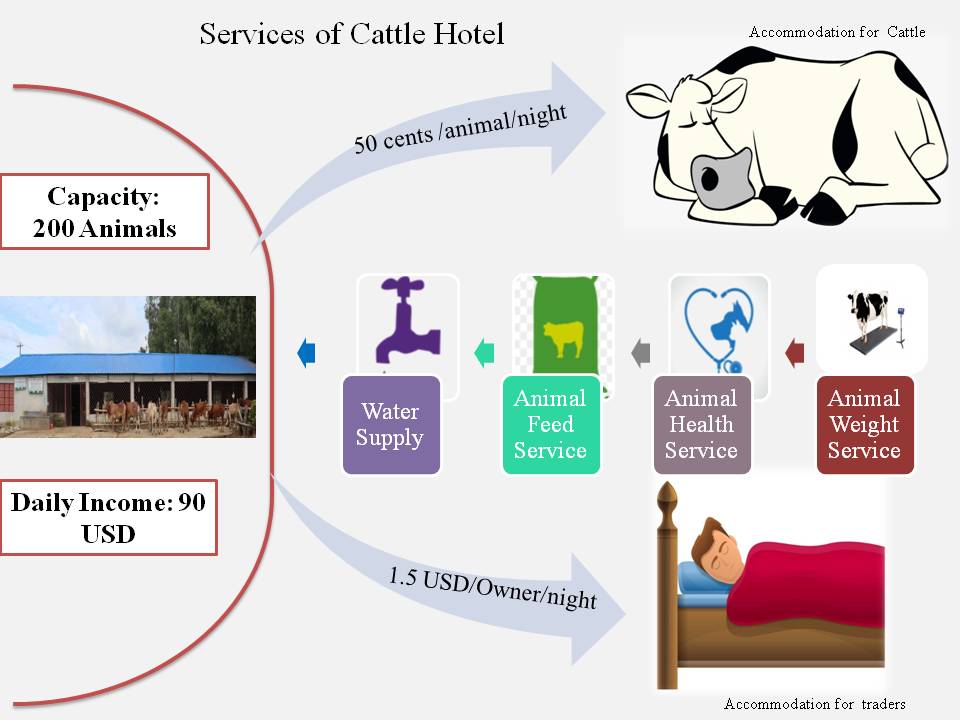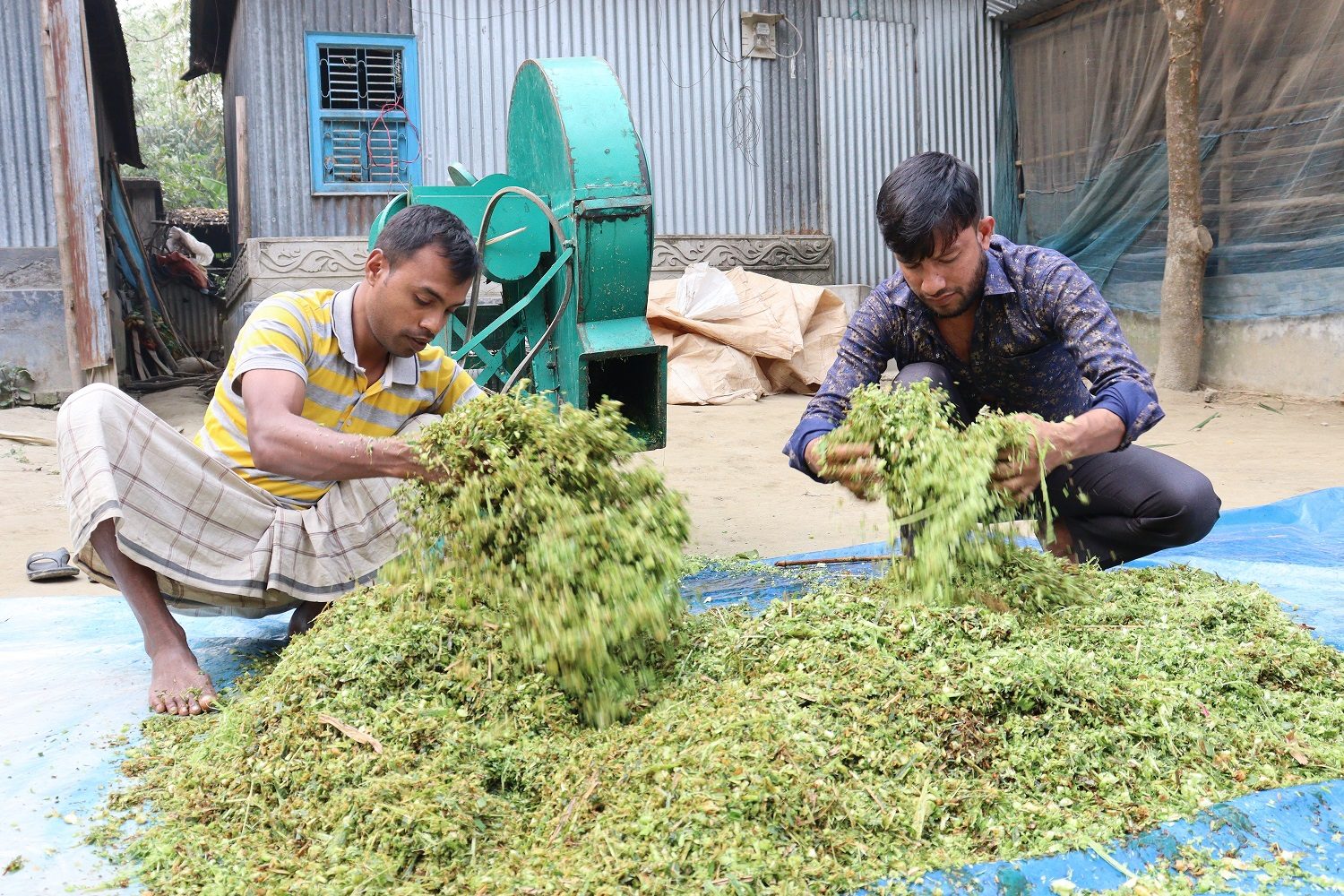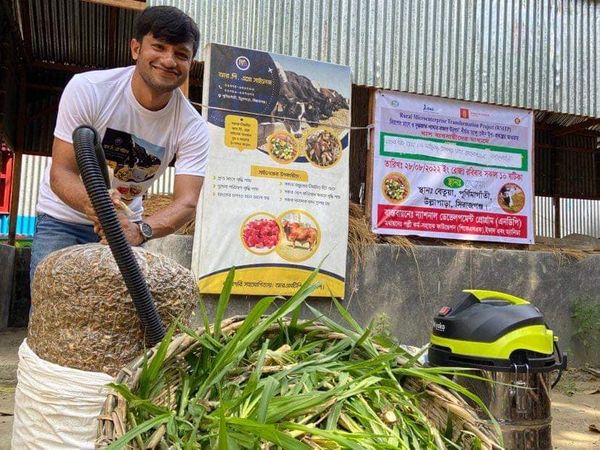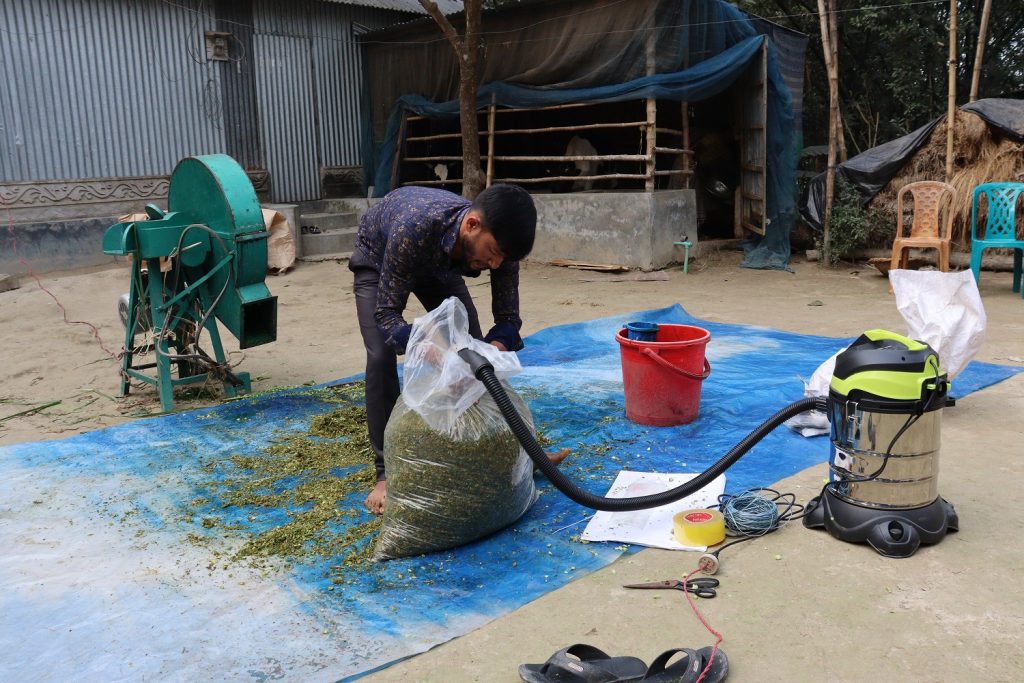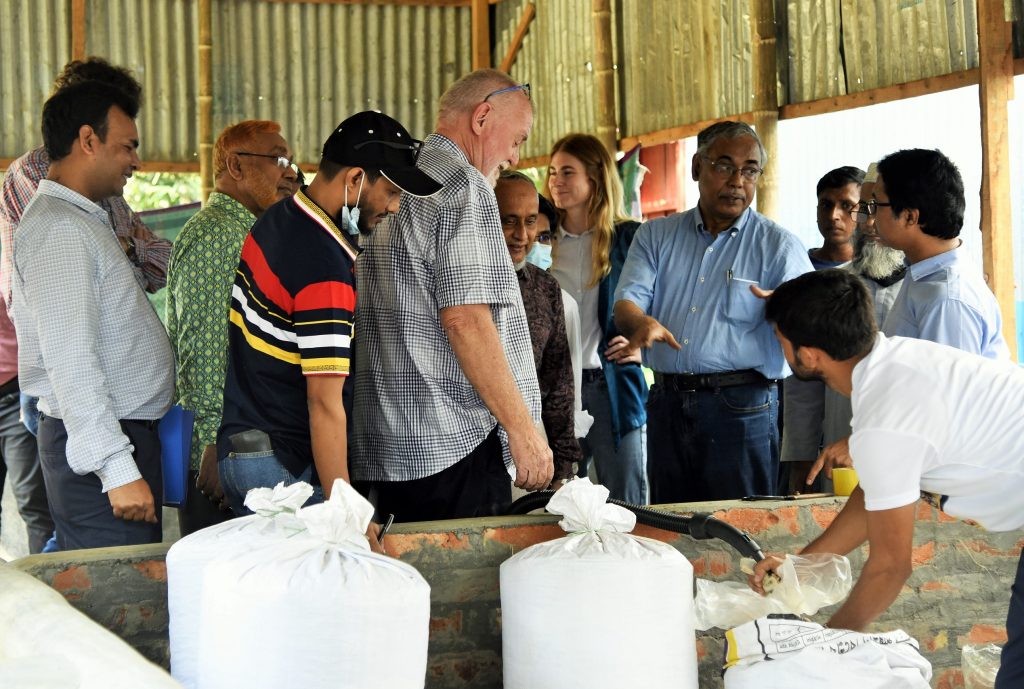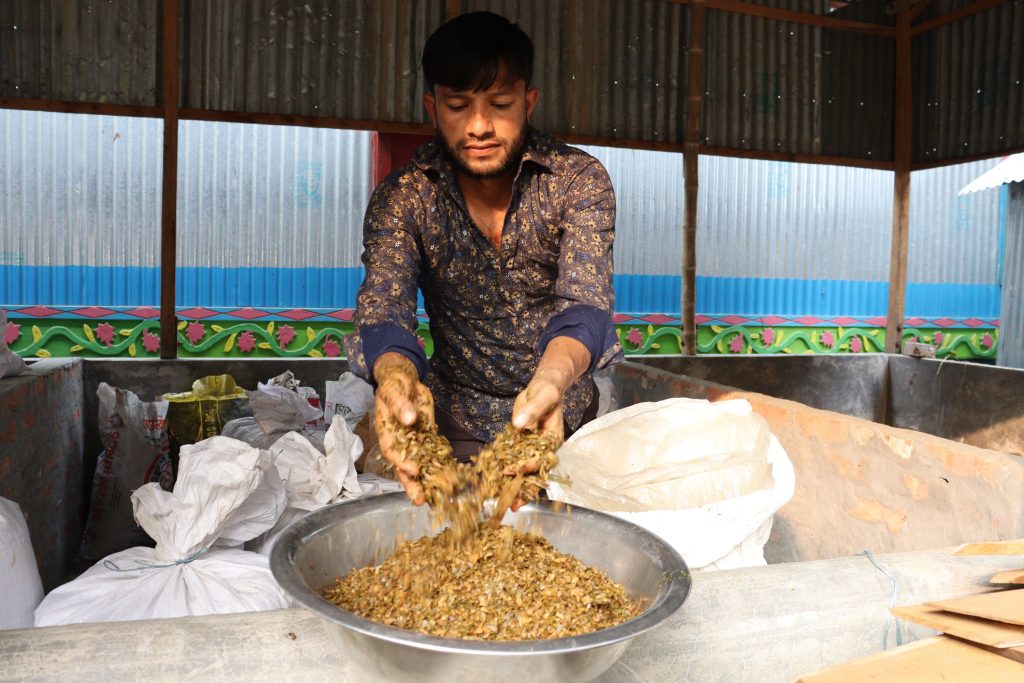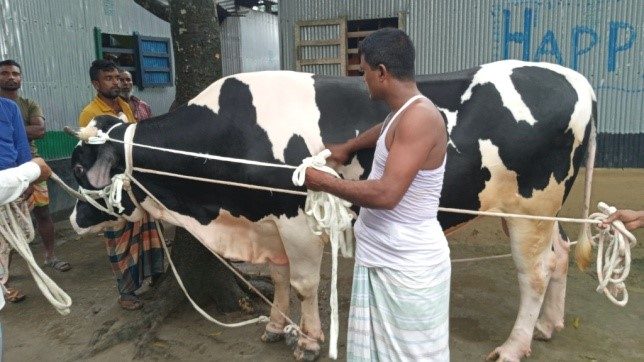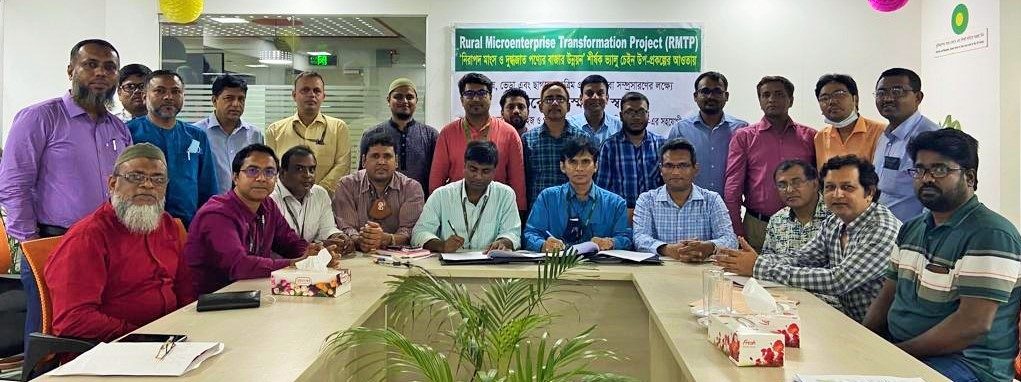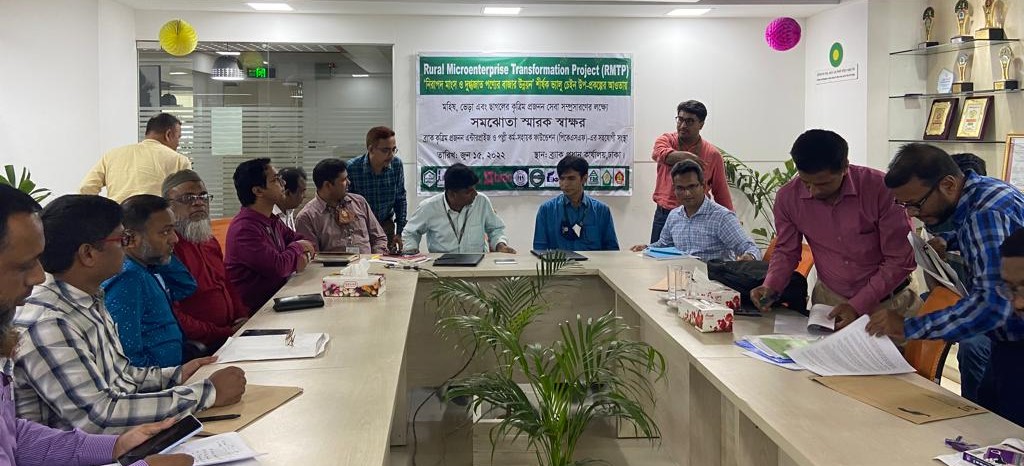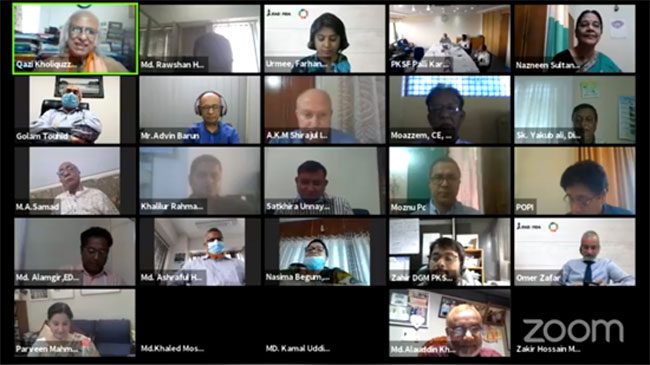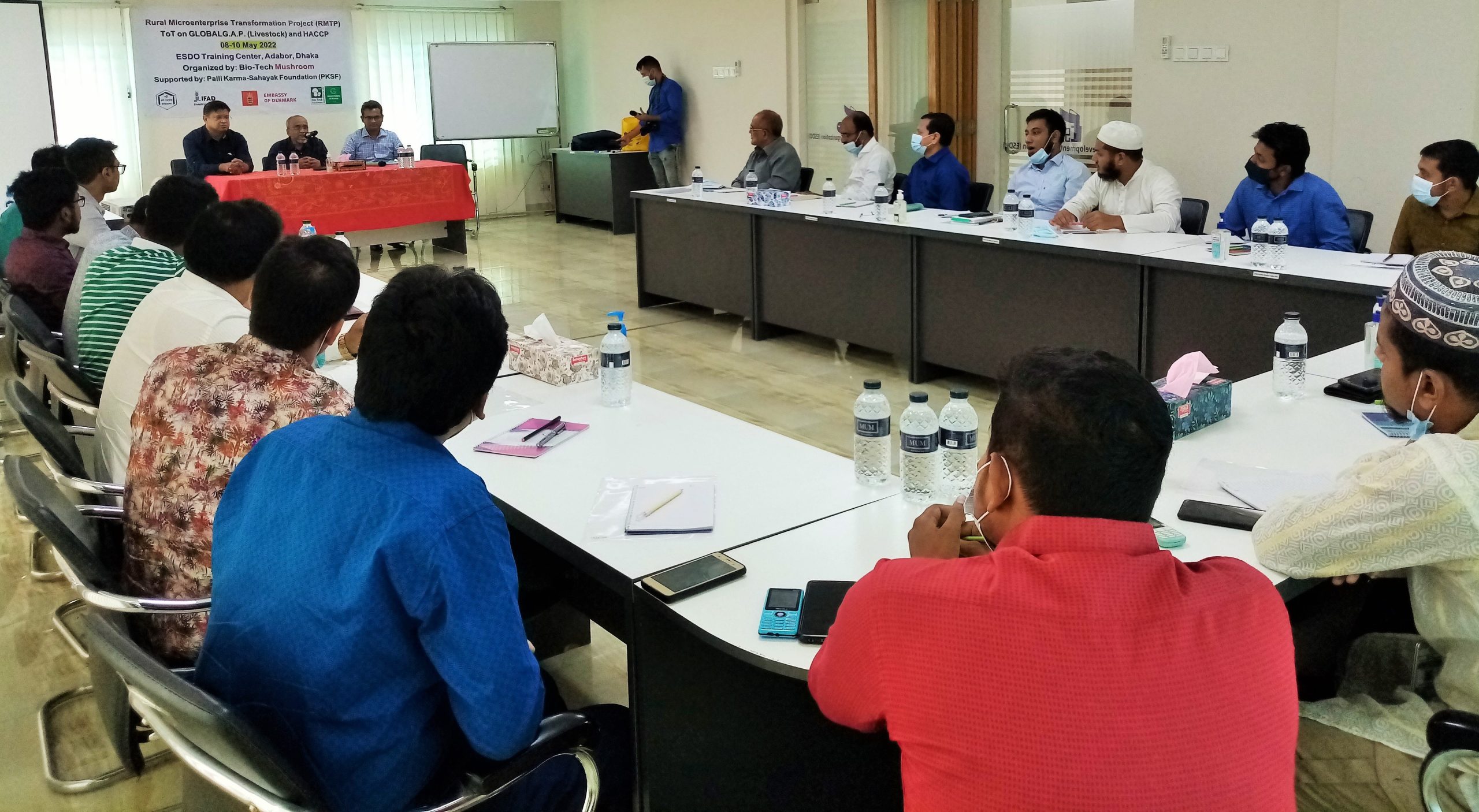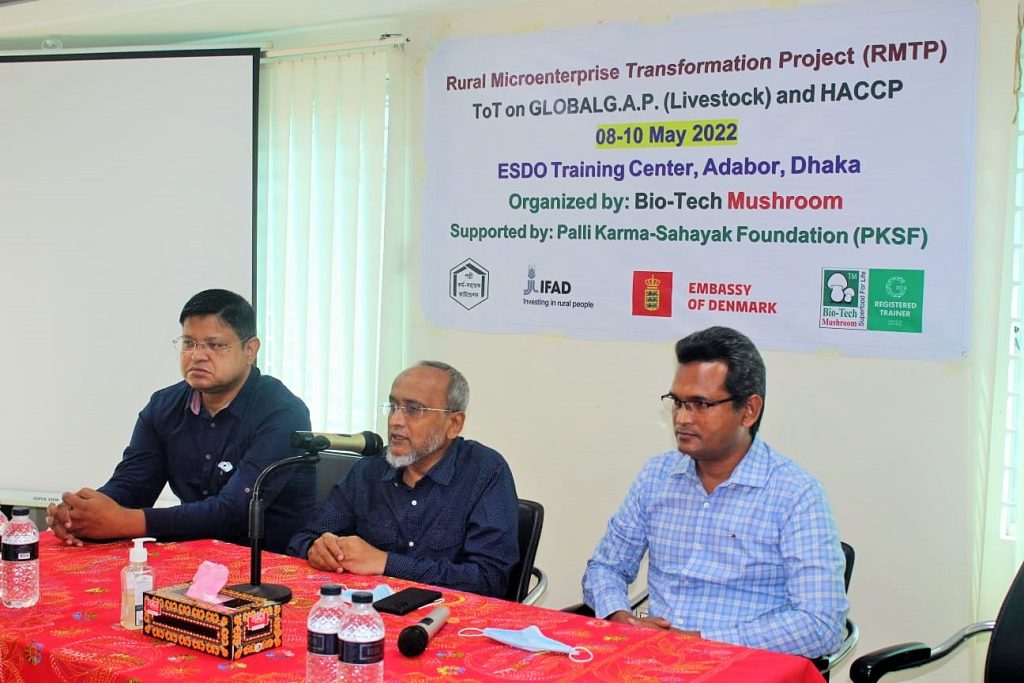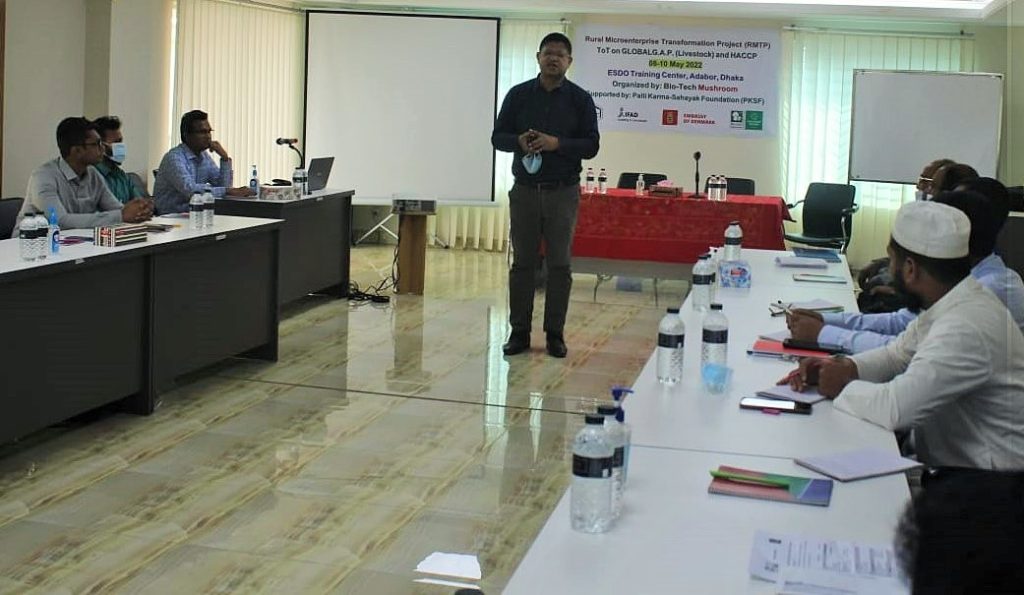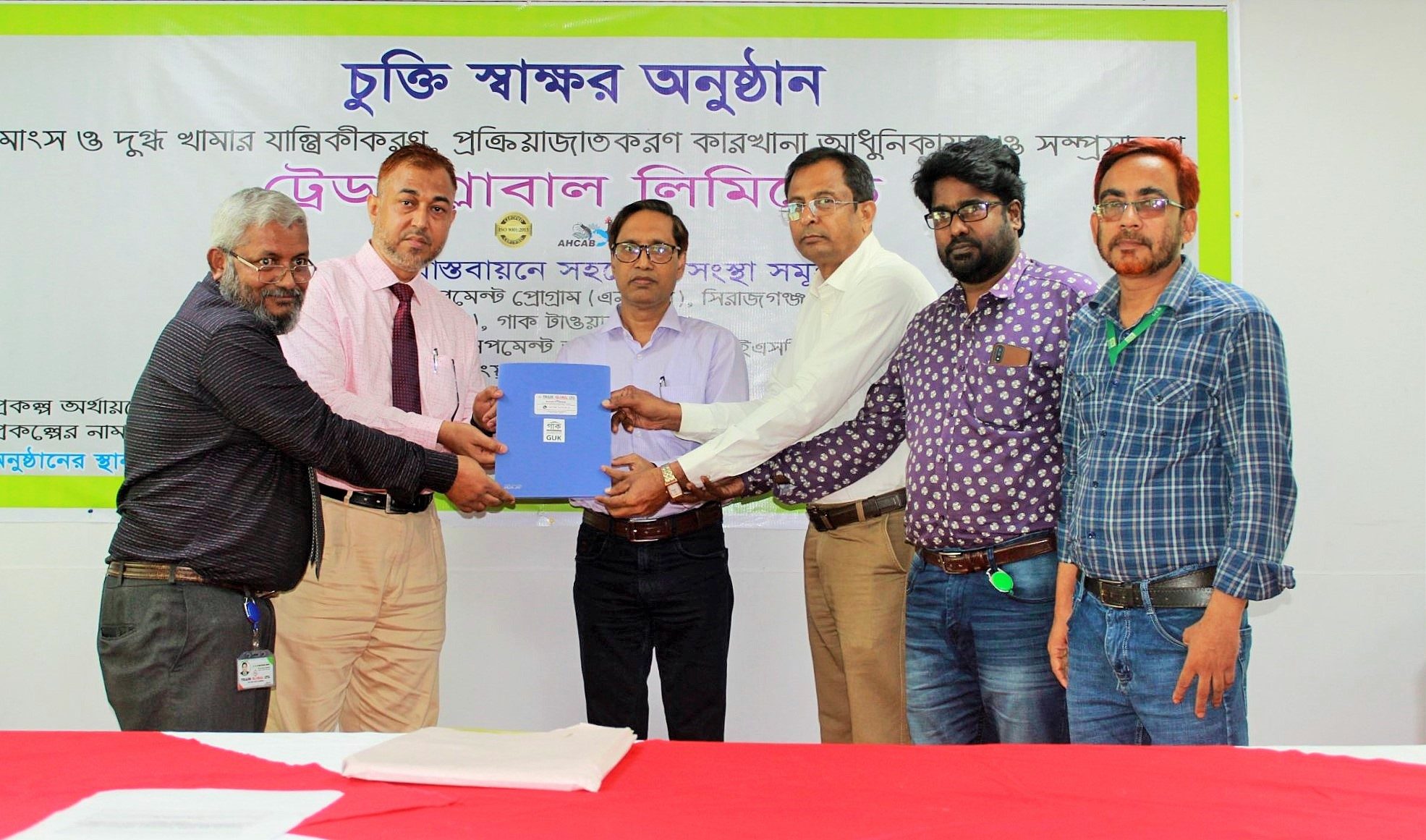As a major boost to Bangladesh’s microenterprise sector, Palli Karma-Sahayak Foundation (PKSF), an apex development agency of the country, has floated a new project titled ‘Rural Microenterprise Transformation Project (RMTP)’. The six-year project, jointly financed by PKSF, the International Fund for Agricultural Development (IFAD), and the Danish International Development Agency (DANIDA), was launched on 23 August 2020.
Mr Md Ashadul Islam, Senior Secretary of the Financial Institutions Division, Ministry of Finance was the Chief Guest at the RMTP’s virtual launching ceremony presided over by PKSF Chairman Dr Qazi Kholiquzzaman Ahmad. Mr Mohammad Moinuddin Abdullah, Managing Director of PKSF, delivered the welcome remarks, and Deputy Managing Director Mr Md Fazlul Kader presented on the different aspects of the project. HE Ms Winnie Estrup Petersen, Ambassador of the Royal Danish Embassy to Bangladesh, and IFAD’s Country Director Mr Omer Zafar attended the meeting as the Guests of Honor. Besides, members of PKSF’s Governing Body and officials of PKSF and its Partner Organizations (POs) exchanged views at the event where they stressed on the need for proper implementation of the project for effective expansion of the country’s microenterprise sector.
Describing the RMTP as a time-befitting project, Senior Secretary Mr Md Ashadul Islam said that development of microenterprises is crucial for the country’s overall economy. Ensuring adequate financing for marginal producers and micro-entrepreneurs is a big challenge and this project, which goes in line with the government’s development strategy, will help address this challenge, he commented. Terming PKSF ‘an iconic institution’ in development operations in Bangladesh, the Senior Secretary said PKSF’s POs have proven efficiency in implementing similar projects like the RMTP. He also hoped that this project will help ensure sustainable expansion of marginal microenterprises.
Highlighting Denmark’s experience in working in Bangladesh as a development partner, Danish Ambassador Ms Winnie Estrup Petersen said supporting small farmers to increase agricultural productivity and output have positive impacts on household income growth, poverty reduction and food security. “The RMTP supports marginal and small farmers, farmer groups, micro-entrepreneurs and agri-businesses to improve their operation and develop commercially beneficial linkages within selective commodity value chains. The RMTP will combine financial and non-financial services to create the best possible impact to enhance incomes and reduce poverty,” she noted.
Mr Omer Zafar, Country Director of IFAD said, “IFAD is delighted to invest in this project with its trusted partners PKSF and DANIDA. The RMTP will strengthen the rural microenterprise sector by applying a value chain approach bringing together all actors – micro-entrepreneurs, input suppliers, technical services, microfinance institutions, non-banking financial institutions, agribusinesses, processors, wholesalers and retailers. Investments will focus on nutritious high value horticulture, livestock, and aquaculture commodities complying with food quality and safety standards, as well as non-farm products and services. A transactional and informational digital platform will also be developed to seamlessly link supply chain stakeholders. The RMTP will generate multiple social, nutritional, financial, economic and institutional benefits for some 450,000 microenterprises representing two million rural women, men and youth, and will create productive jobs for many more.”
PKSF Chairman Dr Qazi Kholiquzzaman Ahmad said that Bangladesh’s economy is still largely rural and agriculture-based, and 80 percent people are working in the informal sector. To transform this, appropriate financing along with technology transfer, training, market expansion, and forward and backward linkages are required, he commented. The eminent economist further said that the rural people won’t need to migrate elsewhere for work if appropriate employment opportunities through microenterprises can be generated in their areas. Referring to the March 7 speech of the Father of the Nation Bangabandhu Sheikh Mujibur Rahman, Dr QK Ahmad said PKSF’s operations in the grassroots are helping ensure the socio-economic emancipation of people as enunciated in the historic speech. He thanked the IFAD and the DANIDA for financing the project.
In the welcome speech, PKSF Managing Director Mr Mohammad Moinuddin Abdullah said that PKSF has been implementing the Microenterprise Program since 2001 as one of its core programs to expedite poverty reduction by creating self and wage employments. He remarked that the RMTP would accelerate poverty alleviation by expanding microenterprise activities in the agricultural sector. Along with financial services, the project will provide various technical and technological support to micro-entrepreneurs, he noted.
In his presentation on the new project, PKSF Deputy Managing Director Mr Md Fazlul Kader said that value chain development, financial services, and institutional capacity development support will be provided for the promotion of agricultural products under three major farm sectors — livestock and poultry, crops and horticulture, and fisheries and aquaculture. He informed that the total fund of the project, which will directly benefit 0.45 million micro-entrepreneurs across the country, stands at $200 million, in which IFAD’s contribution is $81 million and DANIDA will provide $8.30 million. PKSF, its POs concerned, non-bank financial institutions, entrepreneurs and private sector organizations will join hands to accumulate the rest of the fund. This new project will use different innovative technologies to further widen the scope of agricultural activities. Apart from initiating farming activities based on Internet of Things (IoT) and Artificial Intelligence (AI), the project will adopt Blockchain technology to ensure more transparency in the management of financial services. A crowdfunding platform will be launched to create opportunities for equity financing for the microenterprises, he informed.
Mr Kader also highlighted the project’s key focus areas which include production and market expansion of safe agricultural produce and improvement of the nutritional status of the producers and the consumers alike. The project will provide support for the production of agro-products in compliance with the Global Good Agricultural Practices (GGAP) and the Hazard Analysis and Critical Control Points (HACCP) protocols. Traceability and certification of agricultural products will be introduced for the branding of agricultural products. Cultivation of different high-value fruits and crops such as avocado, mangosteen, dragon fruit, coffee beans, Barhi dates, hazelnut, cashew nut etc will be introduced to increase productivity and income of the farmers.
Prior to the RMTP, PKSF undertook four projects with the financial support of IFAD — Microfinance and Technical Support Project (MFTSP), Microfinance for Marginal and Small Farmers Project (MFMSFP), Finance for Enterprise Development and Employment Creation (FEDEC) and the ongoing Promoting Agricultural Commercialization and Enterprises (PACE) project.
Participating in the discussion, the representatives of PKSF’s POs expressed their enthusiasm to implement the RMTP under the supervision of PKSF. They mentioned that they were fully capable of attaining the goal and objectives of the RMTP, as they already had substantial experience in taking part in the implementation of previous projects such as PACE. Lauding PKSF’s transparent and efficient management in project implementation, they expressed their hope that the POs, guided by PKSF, will be able to implement all field activities smoothly of this multi-faceted project for microenterprise development that includes financial services, business cluster-based value chain development, innovative technologies like blockchain, e-commerce, crowdfunding platform, branding, market expansion, traceability and certification of the products of microenterprises.
